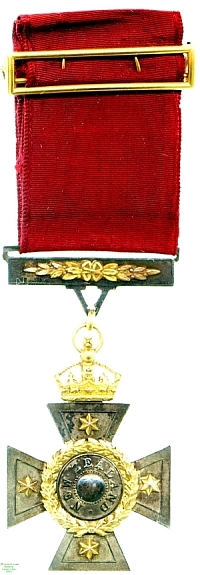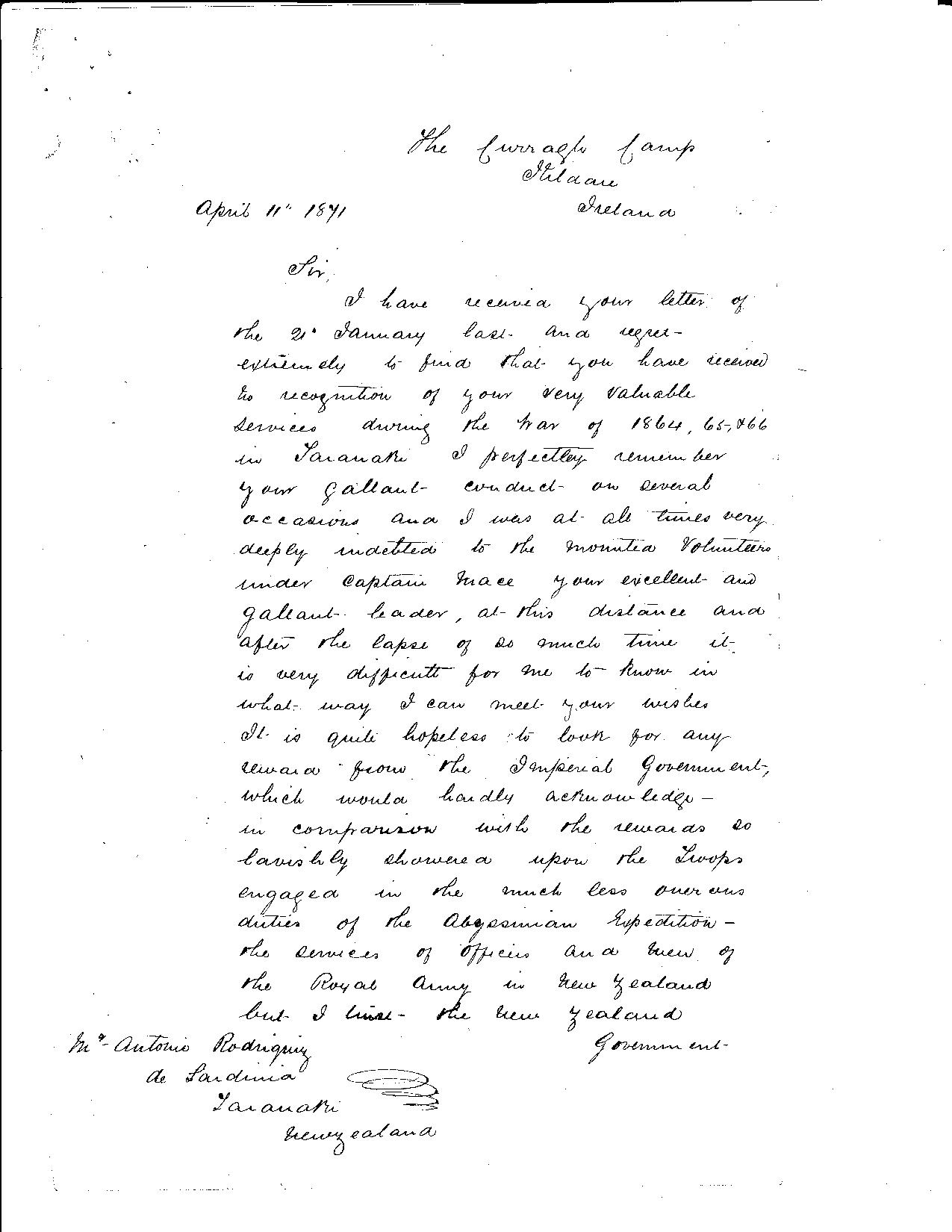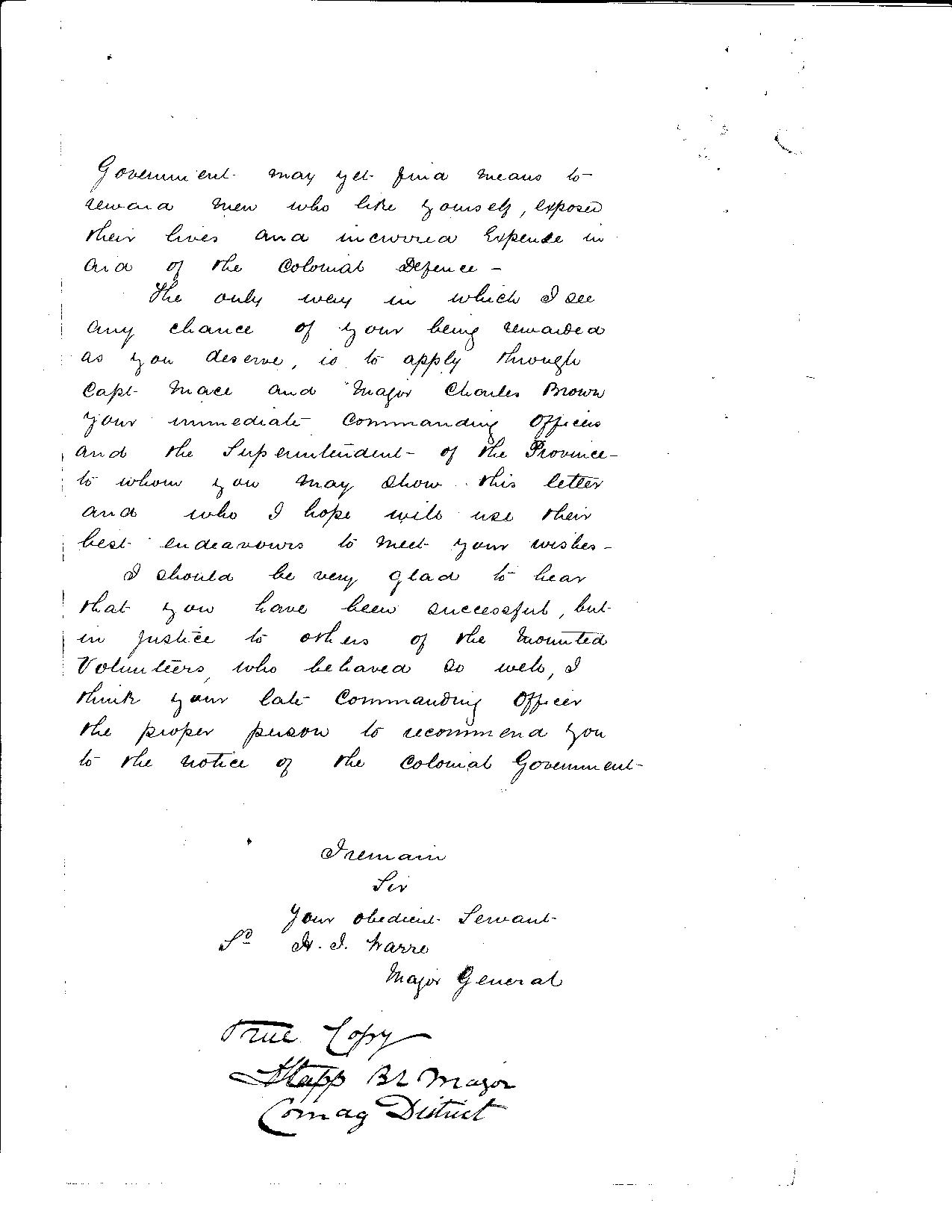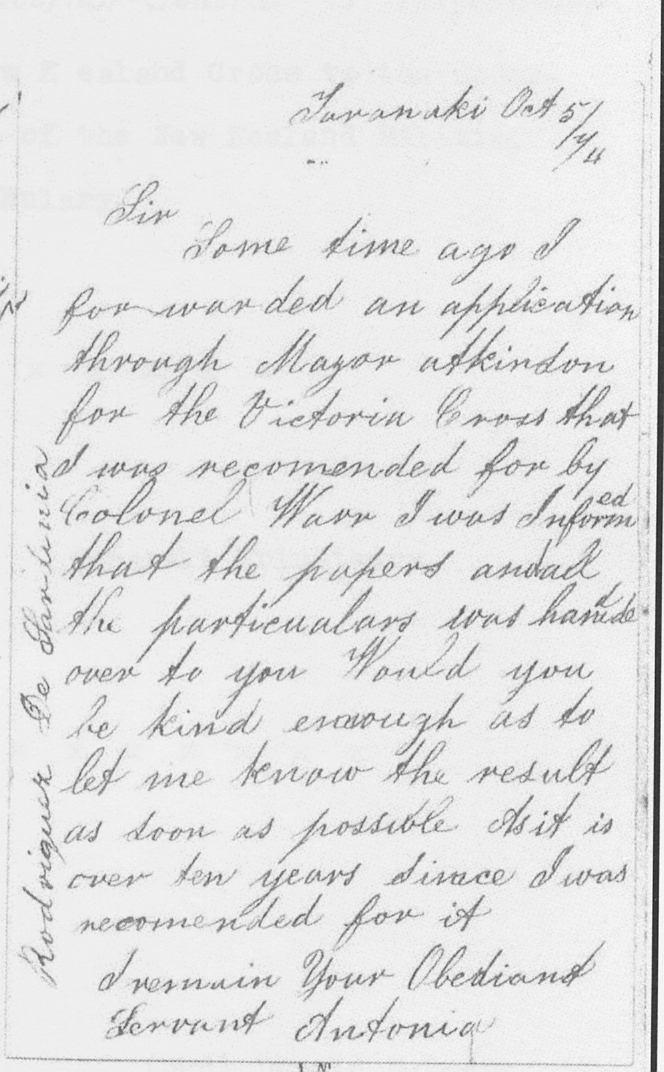.jpg)

The reason for the disparity between Down's, Stagpoole's and Rodriquez's rewards for their bravery in this engagement was very simple: only members of the British Imperial forces were eligible for the Victoria Cross. This distinction was slowly relaxed: in 1864 Major Charles Heaphy, of the New Zealand forces, was awarded the VC for his actions in command of Imperial forces, but the possibility of an award for colonial forces not serving with British ones was never considered. This was at least in part because by that time other solutions were already afoot.

Sir George Ferguson Bowen, 1st Governor of Queensland and 5th Governor of New Zealand, engraving c. 1859X68
Sir George Bowen was appointed Governor of New Zealand in 1867, and was thus able to take advantage of one of the lulls in the New Zealand Wars to try and reconcile the various conflicting interests that had given rise to them and been exacerbated by them. His success in pacifying the developing country was only short-lived, but he also gave his attention to the recognition of the deeds of his armed forces, not least their lack of recognition in awards. To this end, after agitating with the British government unsuccessfully for the extension of eligibility for the Victoria Cross, in 1869 he instigated a local equivalent, the New Zealand Cross, for members of the New Zealand forces. This was greeted with condemnation in Britain, ostensibly because Bowen's action represented an intrusion into the Queen's prerogative, but partly no doubt because Bowen's medal was rather more splendid than the gun-metal V. C., on which it improved with a gold wreath and stars to each arm. However, because Bowen had made orders for the issue of the Cross public, its issue was a fait accompli on which the British government did not wish to be seen to renege, so the medal was granted royal approval. Recommendations were made from all quarters for awards of the Cross, but initial grants were few. Indeed, what with the cessation of hostilities in New Zealand in the 1870s and a relaxation of the rules for VCs in the 1880s, only 23 New Zealand Cross awards were ever made. Among those recommended but not immediately recognised were Captain Francis Mace and Trooper Antonio Rodriquez de Sardinha of the Taranaki Mounted Volunteers.
.jpg)
|

|
A Victoria Cross awarded to Sgt Edward Mott, 1917, and Rodriquez's New Zealand Cross, both now in the Watson Collection, compared; images copyright the Fitzwilliam Museum, Cambridge
In Taranaki, at least, the end of hostilities was in 1864, and the various volunteer units there were disbanded in that year. One recognition that such volunteers did receive was a grant of land from the government on which to start new lives. Rodriquez received two small grants in Kakaramea in South Taranaki, but appears to have sold them quickly and remained in New Plymouth, where he became a hotelier and innkeeper and soon married. Subsequent newspapers report various details of his life in New Plymouth which Ms Lesuma's biography gathers together for those interested, including that he seems to have raced the horse he had ridden in combat in local race meetings, and that in 1870 he found gold on his lands. By this time, Rodriquez would have received his New Zealand Medal for service in the Taranaki campaigns, but there was no news of his recommendation for the Cross. It was perhaps his receipt of the campaign medal that led him to write to the erstwhile head of the 57th Regiment, whose men he had rescued, Colonel Sir Henry James Warre, in pursuit of further testimonials. Warre's reply took some time to arrive, as he was now stationed in Ireland, and though personally supportive the colonel was not overly hopeful for Rodriquez's chances.

Letter from Colonel Henry Warre to Antonio Rodriquez, April 11 1871; National Archives, Wellington, New Zealand. Click to enlarge
... I perfectly remember your gallant conduct on several occasions and I was at all times very deeply indebted to the Mounted Volunteers.... At this distance and after the lapse of so much time it is very difficult for me to know in what way I can meet your wishes. It is quite hopeless to look for any reward from the Imperial Government....

Click to enlarge
I should be very glad to hear that you have been successful, but in justice to others of the Mounted Volunteers, who behaved so well, I think your late Commanding Officer the proper person to recommend you to the notice of the Colonial Government.
Rodriquez seems to have followed this advice, but Major W. G. Atkinson, to whom he applied, seems only to have sent the gathered extracts from dispatches and so on in late 1873. Replies from the government then took nearly a year to be made. Matters did not go well for Rodriquez in other ways in these years, also. He and his wife separated in 1872, and in the same year he was fined for assault, although the magistrate noted that he had been considerably provoked. What with these and other matters, by the time that Rodriquez again took the matter up the wheels were already in motion. The letter of enquiry survives in his own hand.

Letter from Antonio Rodriquez to New Zealand Native & Defence Office, 5 October 1874; National Archives, Wellington, New Zealand
Sir
Some time ago I forwarded an application through Major Atkinson for the Victoria Cross that I was recommended for by Colonel Warr I was Informed that the papers and all the particulars was handed over to you Would you be kind enough as to let me know the result as soon as possible As it is over ten years since I was recomended for it
I remain Your Obedient Servant
Antonio Rodriquez de Sardinha
It is interesting to note from this not only Rodriquez's facility in writing what was, after all, his second language, but also that he was still hopeful of a VC, and indeed, claims to have originally been recommended for one. In fact, the Minister of Native Affairs, Donald McLean, had already taken the case for an award of the New Zealand Cross into consideration in September. Nonetheless, it was only in April 1876 that McLean finally made his recommendation to the Governor General, and on 11th May that year the New Zealand Gazette carried the news of the award of two New Zealand Crosses, one to Captain Francis Joseph Mace and one to Trooper Antonio Rodriquez.